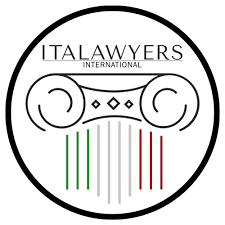Wills & Probate
We have experience in handling complex matters involving assets and beneficiaries located in multiple jurisdictions, thus we are able to provide legal advice in the most complicated of cases.
Expert Guidance on Italian and English Estate Administration, Wills, and International Inheritance Matters
As dual-qualified solicitors, we provide expert assistance on Italian and English estate administration, international wills, inheritance tax, family law, and property law.
Given the differences between Italian and English law, it’s crucial to avoid non-specialist solicitors for cases involving properties in both countries, and to rely solely on experts who understand the intricacies of international inheritance matters.


Our Expertise and Legal Services
We understand the sensitive nature of these issues and are well-equipped to handle complex cases involving assets and beneficiaries across multiple jurisdictions.
Our experts can advise under the law of England and Wales and/or Italian wills and inheritance matters.
We manage estate administration and distribution, relieving clients from the stress of fulfilling their loved ones’ wishes.
Our team offers significant expertise in:
- Obtaining a Grant of Probate
- Advising Beneficiaries on Taxation Matters
- Managing Legacies to Minors
- Protecting Assets from Creditors and Taxation
Navigating Italian Law
In Italy, succession law is based on the principle of unity of inheritance, which differs from common law. For non-property assets, the law of the deceased’s last domicile applies, while property assets are governed by the law of the country where the property is located. This can create complexities, especially when dealing with assets in multiple countries.
After a family member’s passing, it’s essential to take several steps: submit a Dichiarazione di Successione (Statement of Succession) within a year, search for the will, inventory assets, check for safety deposit boxes and bank accounts, and contact relevant authorities.
Some difficulties people usually encounter are:
- Divergent Legal Frameworks: Different rules for inheritance and wills.
- Applicable Laws: Close collaboration to overcome challenges.
- Expertise You Can Trust: Confusion over which country’s law applies based on asset location and domicile.
- Tax Regulations: Variations in inheritance tax obligations.
- Asset Distribution: Different rules on forced heirship and distribution.
- Estate Administration: Complexities in navigating probate processes in both countries.
Frequently Asked Questions
Probate is the process through which someone gets the court’s permission to deal with a deceased person’s estate – collecting up all the assets, paying off any debts and distributing the assets to the beneficiaries who are entitled to them.
- If there is a will, the executors (the people responsible for dealing with the estate) are usually named in it. They can apply to the probate registry for a ‘grant of probate’.
- If no executors are named, or none of the executors is prepared to act, a beneficiary of the will can apply to the probate registry for a ‘grant of letters of administration (with will annexed)’.
- If there is no will, a relative can apply for a ‘grant of letters of administration’.
Once the probate registry is satisfied with the application, the executors or administrators are asked to complete a statement of truth confirming the information they have provided and their commitment to deal with the estate in a right and proper manner.
The grant of probate (or letters of administration) can be shown to anyone who is asked to release any money or other assets belonging to the deceased’s estate.
If you don’t already know where the will is kept, or aren’t sure whether you have the latest one, you’ll need to try to find the will.
Check through any paperwork in the house: look in files, desk drawers and in the safe if there is one. You can also check with the deceased’s bank in case they have the will in safe-keeping.
Contact any solicitors that the deceased used and ask them if they have a copy of the will. If you don’t know which solicitor they used, you can pay a fixed fee for a will search to be done.
Alternatively, the will may have been deposited with the probate registry. You can ask for a search to be made by sending a letter together with an official copy of the death certificate.
If you still can’t find the will, it’s worth asking anyone else who you think may have been asked to be an executor – typically family or close friends – in case they know where the will was kept.
Bear in mind that a will is not a public document until probate has been granted. Until then, only the executors are entitled to see it. A solicitor, or the probate registry, will not provide the will to you if you are not named in it as an executor.
In the UK
A will cannot be valid unless it meets four requirements:
- the individual whose will it is must have been at least 18 years old when the will was made
- the will must be in writing, signed by the person making the will in the presence of two witnesses
- it must have been drawn up when the individual concerned had ‘testamentary capacity’ – broadly, an understanding of what they were doing
- the individual must not have been acting under undue influence
In addition, a valid will becomes invalid if:
- the individual makes a later, valid will
- the individual gets married or enters into a civil partnership, unless the will was clearly made with that marriage or partnership in mind
- the individual deliberately destroys the will
If a will is invalid, then the will is set aside. The most recent previous will (if any exists) becomes the valid will. If there is no valid will, the estate is dealt with in the same way as if the deceased died ‘intestate’.
Similar rules apply to any ‘codicils’ – documents that change the terms of an original will. If a codicil is invalid, then the original will remains in force as it stands, as if the codicil did not exist.
If you have any reason to believe that a will (or codicil) is invalid, you should take legal advice.
In Italy
The law is different and there are different rules. Please contact us and we will be happy to have a meeting with you.
In the UK
If there is no will, then the deceased died ‘intestate’. This has two key consequences:
- As there is no will, there are no named executors. A relative can apply to administer the estate.
- The assets must be distributed according to the rules of intestacy.
In Italy
The assets must be distributed according to the rules of intestacy.
In the UK
Acting as an executor can be complex and time-consuming. It can also be stressful if you are coping with the death of someone close to you, or you find yourself in the middle of family disputes.
Using a probate professional can be particularly helpful if:
- the estate is valuable and inheritance tax is likely to be payable
- the estate is complicated – for example, with business or overseas assets
- underage children or family trusts are involved
- there are questions over the validity of the will
- you have reason to believe that the will could be contested
- practical issues (such as your location or other commitments) make it difficult for you to take a hands-on role as an executor
In Italy
If there are properties or monies in Italy you need a dual qualified professional to help you understand the differences between the two legislation and the different rules of intestacy. Please contact us and we will be happy to assist.
Normally you can track down someone’s assets by checking through all their paperwork. Pay particular attention to their bank statements. Unexplained payments made by the deceased could indicate the purchase of assets, or a gift or loan that needs to be taken into account. Conversely, any unexplained income might indicate some kind of income-producing asset.
You’ll also need a thorough inventory of the contents of the deceased’s home. It may be worth checking with close family or friends – particularly anyone the deceased was living with.
For example, they might be aware if any valuables are hidden somewhere in the home or kept in a safe deposit box.
Of course, if the deceased was deliberately hiding assets there may be little or no evidence to show the way. If you think this is the case, you may want to take legal advice on what you should do.
In terms of debts that need to be paid, you should carefully check paperwork and may want to ask close family and friends. You can also advertise the death, both locally and in the London Gazette, asking anyone who thinks they may have a claim against the estate to contact you within two months. This helps protect you against any future claims.
In the UK
You may not need a grant of probate if the estate is of low value. You may find that banks and other organisations are prepared to release relatively small sums after seeing a copy of the death certificate. If not, you will need to obtain a grant of probate.
Joint assets (such as joint bank accounts) generally pass automatically to the surviving owner. This can include a property provided it is owned as ‘joint tenants’ – but not property that is owned as ‘tenants in common’. Again, a death certificate may be sufficient.
In Italy
If the Deceased had properties in Italy you need a UK grant of Probate to proceed with the Italian Dichiarazione di Successione. Please note that you also need an Italian Tax Code to proceed and you must apply to the Italian Consulate in the UK to have one.
In the UK
You can apply yourself or using a probate professional.
As of 26 January 2022, the fee for obtaining a grant of probate is £273 for all applications.
You need to complete a probate application form PA1P (if there is a will), or form PA1A (if there is no will). You may also need to complete an inheritance tax form. This will depend on the value and make up of an estate. New rules apply from January 2022, and if an estate is classified as an “excepted estate” no inheritance tax form is needed. However, the value of all estates must be advised to HM Revenue & Customs (HMRC). If tax forms are needed, form IHT205 is used if no tax is payable or forms IHT400 and IHT421 otherwise. You cannot apply for a grant of probate until you have valued the deceased’s estate.
Along with the forms, you must enclose an official copy of the death certificate, the original will (and any codicils) and the fees.
You will need to sign a legal statement, either online or on the paper application, confirming that the information you have given is true and promising to administer the estate properly. You may be contacted by the probate registry if they have any queries.
Before applying, you should decide how many copies of the grant of probate you will want. Additional copies make it easier to deal with all the organisations who may ask to see official copies of the grant. There is a small fee for each additional copy.
In Italy
If the Deceased had properties in Italy you need to apply to the offices in Rome and request the UK’ grant of Probate to proceed with the Italian Dichiarazione di Successione.
Please note that you also need an Italian Tax Code to proceed, and you must apply to the Italian Consulate in the UK to have one.
Please contact us and we will be happy to assist.
In a simple case, probate might only take a few months. Six to nine months is more typical, while particularly complicated estates or contested wills can drag on for years.
All sorts of complications can delay the process, including:
- Difficulty identifying all the assets and liabilities, for example if the deceased did not keep clear records
- Complicated financial circumstances, for example if the deceased was a beneficiary of a trust or had made significant gifts during the seven years prior to death
- Delays or difficulties obtaining valuations, including for any assets held overseas or hard-to-value assets such as private company shares
- Any dispute over who is entitled to claim against the estate
Once the application has been submitted to the probate registry, the grant of probate can take up to 12 weeks, but it may arrive earlier if the application was made online. If the estate is taxable and more complex, the grant of probate could take much longer, particularly if HMRC or the Probate Registry have questions about the estate or application.
Disputes over wills can arise when:
- a relative or someone who was financially dependent on the deceased feels the will does not provide adequately for them
- a beneficiary feels that the estate is not being properly administered
Claims by relatives and dependents must be made within six months of the grant of probate. As an executor, you may want to wait until this deadline has passed before distributing assets. Otherwise, if a claim was successful, you might need to try to reclaim assets that you have already paid out.
As far as claims by beneficiaries are concerned, you can help minimise the risk by making sure that you deal with the estate quickly and efficiently. It’s a good idea to keep beneficiaries updated on your progress, explaining the reasons for any delays.
In Italy
there are different rules, and you should take legal advice from a dual qualified professional who will help you understand the different legislation.
Please contact us and we will be happy to assist.
In Italy and the UK
If there is a dispute, you will need to consider how best to deal with the estate. It may be unwise to distribute any assets until the dispute has been resolved, even if you have to manage the assets for longer than expected.
Going to court can be expensive and time-consuming, so if a will is contested you should try to negotiate agreement if possible. Always take professional advice immediately.
Estate administration is a broad term that refers to the process of sorting out a deceased person’s legal and tax affairs.
This can include everything from bank accounts to personal belongings, property, debts and pensions. These items are collectively referred to as ‘the estate’.
If part of the asset is in Italy or the UK, contact us and we will be happy to assist.





